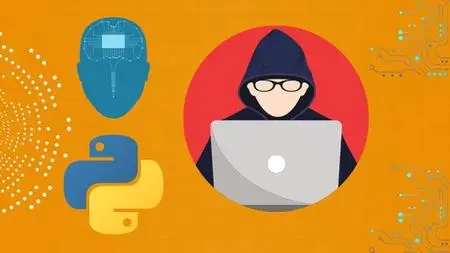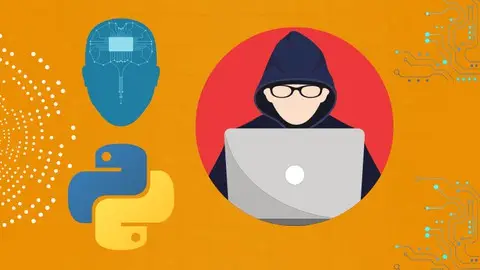Fundamentals Of Ethical Hacking Tools With Chatgpt & Python
Published 7/2023
MP4 | Video: h264, 1280x720 | Audio: AAC, 44.1 KHz
Language: English | Size: 724.95 MB | Duration: 1h 39m
Published 7/2023
MP4 | Video: h264, 1280x720 | Audio: AAC, 44.1 KHz
Language: English | Size: 724.95 MB | Duration: 1h 39m
ChatGPT and Python: Software Development and Security Testing
What you'll learn
Software Developers: Software developers who want to enhance their Python programming skills and learn how ethical hacking tools are developed would be interest
System and Network Administrators: System and network administrators may want to enhance their ability to perform security tests using their Python programming
Information Security Professionals: Information security professionals may want to specialize in detecting, analyzing, and improving security measures using eth
Cybersecurity Researchers: Individuals conducting research in the field of cybersecurity may be interested in using ethical hacking tools to discover and analyz
University and College Students: Students studying computer science, computer engineering, and information security fields at universities and colleges may be i
Internet and Network Security Enthusiasts: Anyone interested in internet and network security can enroll in this course. By learning the fundamentals of identif
Requirements
have learned something about cybersecurity, albeit at a basic level
Description
This course aims to teach participants how to develop ethical hacking tools using ChatGPT and Python programming language and perform security testing.Starting from the beginner level and progressing to advanced concepts, this course is designed for individuals who want to enhance their Python programming skills. After reviewing the fundamental concepts of Python, the course focuses on important topics such as virtual machine installations and network fundamentals.In the later sections of the course, we will learn how to develop ethical hacking tools. Step-by-step, we will explore tools like Mac-Changer, Metasplotiable, network scanner, arp spoofing, keylogger, and more, understanding their functionalities. Additionally, we will learn how to detect security vulnerabilities in web applications using tools such as website hacking crawler, website hacking brute force, and website hacking vulnerability scanner.This course provides practical knowledge that enables students to understand how ethical hacking tools work, conduct security tests, and identify security vulnerabilities. Throughout the course, students will also have the opportunity to apply their skills to real-world scenarios.By the end of the course, you will have enhanced your ability to develop ethical hacking tools using ChatGPT and Python programming language, making you more competent in security testing. This course is suitable for anyone interested in pursuing a career in cybersecurity or strengthening security measures.
Overview
Section 1: Giriş
Lecture 1 Links
Section 2: Python
Lecture 2 Print Command
Lecture 3 Variables
Lecture 4 Variables 2
Lecture 5 Python If
Lecture 6 For
Section 3: What is a Virtual Machine ? How to Install
Lecture 7 Introduction
Lecture 8 Virtual Machine Install
Lecture 9 Files to Download
Lecture 10 Download Links
Lecture 11 Installing Kali Linux from iso
Lecture 12 Installing Kali Linux From image
Lecture 13 Update And Upgrade
Lecture 14 Linux Commands
Section 4: Installation
Lecture 15 Pycharm
Lecture 16 Metasploitable
Section 5: VERY IMPORTANT | Announcement
Lecture 17 YOU CAN BE HACKED
Section 6: Network Scanner
Lecture 18 Network Scanner 1
Lecture 19 Network Scanner 2
Section 7: Web Hacking | Crowled
Lecture 20 Get Request
Lecture 21 Find Subdomain
Lecture 22 Find Directory
Lecture 23 Read Response
Lecture 24 Read just Link in HTML page
Lecture 25 External links
Lecture 26 Discovering All Paths
Section 8: Web Hacking | Quess Login
Lecture 27 Python Sign-in
Lecture 28 Brute Force
Section 9: Writing Vulnerability
Lecture 29 Parsing HTML
Lecture 30 Html Attiruables
Lecture 31 Posting forms
Software Developers,System and Network Administrators,Information Security Professionals,Cyber Security Enthusiasts



